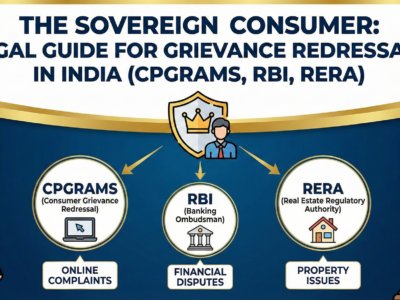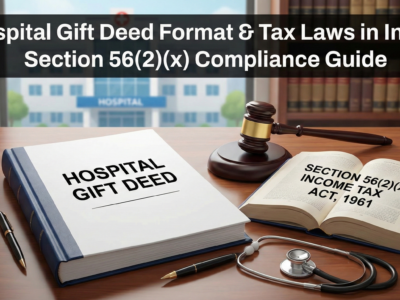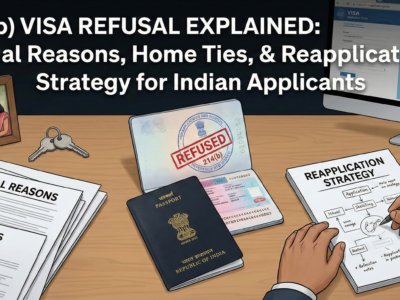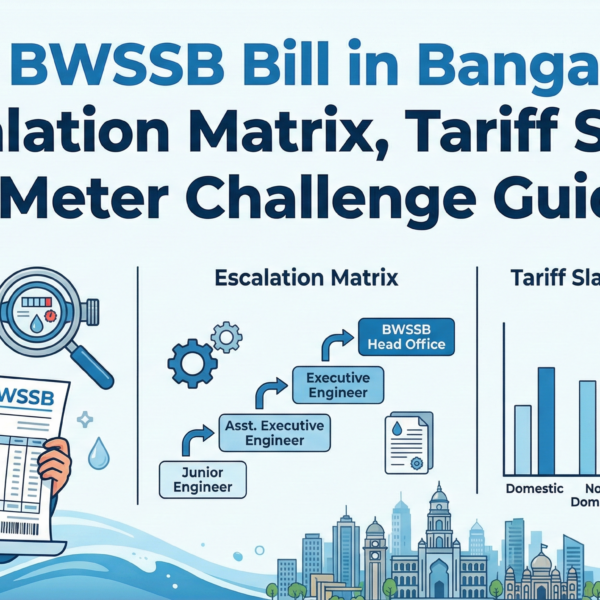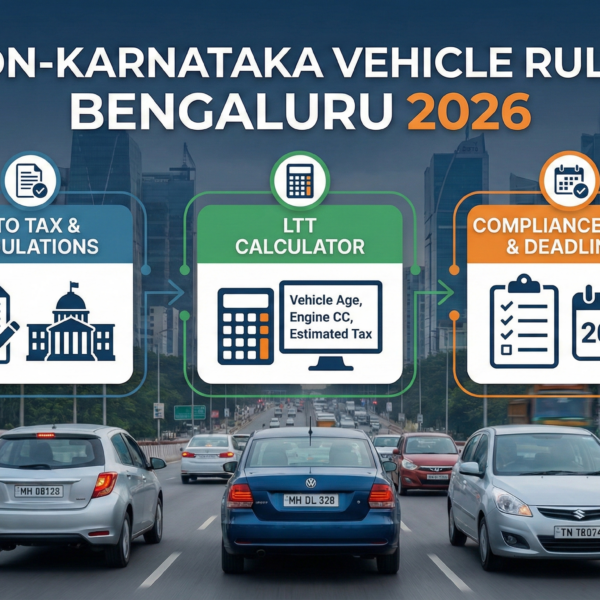Owning property in India while living abroad should be a source of pride and security, not stress and uncertainty. Yet, for millions of Non-Resident Indians (NRIs), the distance creates a chasm of vulnerability, exposing their valuable assets to everything from illegal occupation and tenant troubles to complex inheritance battles.
This guide is designed to bridge that gap. We provide clear, actionable information and interactive tools to empower you, helping you navigate the complexities of Indian property law and securely manage your assets from anywhere in the world.
The Definitive NRI Guide to Indian Property
Navigating the complexities of property ownership, inheritance, and disputes from abroad. Your complete resource for protecting your assets in India.
The Regulatory Landscape
While India's laws (FEMA & RBI guidelines) are liberal, encouraging NRI investment, the reality of managing assets from abroad is perilous. Understanding this gap between policy and practice is key to safeguarding your property.
The NRI "Absence Vulnerability" Gap
Welcoming Policies
Unlimited residential/commercial property purchase. Easy fund repatriation.
Harsh Realities
Illegal occupation, title fraud, tenant issues, and lengthy legal battles.
Permissible vs. Restricted Properties
NRIs/OCIs can purchase unlimited residential and commercial properties. However, a critical restriction applies to Agricultural Land, Farmhouses, and Plantation Properties. These cannot be purchased by an NRI/OCI. They can only be acquired through inheritance.
Funding, Taxation, and Repatriation
Funding Your Purchase
Transactions must be in Indian Rupees (INR) via NRE, NRO, or FCNR accounts. This creates a mandatory financial trail for regulatory oversight.
Tax on Capital Gains
Profit from a property sale is taxed. If held >24 months, it's a Long-Term Capital Gain taxed at 20% (with indexation benefits). If held <24 months, it's a Short-Term Capital Gain taxed at your slab rate. The buyer must deduct TDS at 20% for long-term gains.
Repatriating Sale Proceeds
You can repatriate up to USD 1 million per financial year. Funds must first go to an NRO account, where tax liabilities are settled. Repatriation requires submitting Forms 15CA and 15CB (a certificate from a Chartered Accountant) to the bank.
Navigating the Labyrinth of Inheritance
Inheritance in India is governed by personal laws based on religion. The existence of a valid Will is the single most critical factor that determines whether the process is straightforward or a protracted legal ordeal.
Inheritance Pathways: Will vs. No Will
Testamentary Succession
(With a Valid Will)
Process: Probate
A court certifies the Will's authenticity, granting the executor authority. Clear, direct, and minimizes disputes.
Intestate Succession
(Without a Will)
Process: Succession Certificate
Heirs must apply to a court for a certificate to claim movable assets. Complex, slow, and prone to family disputes.
Key Legal Documents Compared
| Feature | Probate | Succession Certificate | Legal Heir Certificate |
|---|---|---|---|
| Purpose | Certifies a Will's validity. | Authorizes heirs to claim movable assets. | Identifies legal heirs for government/title purposes. |
| Scope | All assets in the Will. | Movable assets only (bank deposits, shares). | Immovable property mutation, government claims. |
| Authority | Civil Court / High Court | Civil Court | Revenue Authority (Tahsildar) |
| Scenario | When a Will exists. | When there is NO Will. | Primarily when there is NO Will. |
Post-Inheritance: The Crucial Final Step
Mutation of Property
After inheriting, you MUST get the property "mutated." This means updating the owner's name in the official records of the local municipal or revenue authority. Without mutation, you cannot legally sell the property, pay taxes in your name, or use it as collateral. It is the final step that aligns your legal inheritance with official government records.
Anatomy of Common NRI Property Disputes
The owner's physical absence creates a power vacuum systematically exploited by relatives, tenants, and fraudsters. Minor issues often metastasize into complex legal battles.
The Dispute Escalation Funnel
Minor Issue (Ignored)
Tenant delays rent payment. Owner is abroad and doesn't act.
Problem Festers
Tenant stops paying rent entirely and refuses to vacate after lease ends.
Escalation to Fraud
Tenant, after years of occupation, forges documents to claim ownership.
Major Legal Battle
NRI must now fight a complex, multi-year title suit instead of a simple eviction case.
Key Threats to NRI Property
Adverse Possession
A legal doctrine where someone who illegally occupies your property openly and continuously for 12 years can legally claim ownership. The owner's absence and inaction are the primary enablers of this threat.
Builder Disputes & RERA
Delayed possession is a major issue. The Real Estate (Regulation and Development) Act, 2016 (RERA) is your primary weapon. It empowers you to file complaints with state RERA authorities to seek a full refund with interest or compensation for delays.
The NRI's Arsenal: Proactive Protection
A reactive approach is often too little, too late. Proactive protection counters the "Absence Vulnerability" by creating legal fortifications and establishing a reliable proxy presence.
The Power of Attorney: A Double-Edged Sword
General PoA (GPA)
The High-Risk Path
Grants broad, sweeping powers. Highly susceptible to fraud and misuse. Strongly Discouraged.
Special PoA (SPA)
The Secure Path
Restricts authority to a specific, defined task (e.g., "execute one sale deed"). Minimizes risk. Highly Recommended.
GPA vs. SPA: A Deeper Look
| Feature | General Power of Attorney (GPA) | Special Power of Attorney (SPA) |
|---|---|---|
| Scope | Broad and comprehensive; covers multiple transactions. | Narrow and specific; limited to a single, defined task. |
| Risk of Misuse | Extremely High | Low |
| Recommended? | Strongly Discouraged | Highly Recommended |
PoA Execution Gauntlet (for NRIs Abroad)
- Drafting in India: Engage a lawyer in India to draft a legally compliant Special Power of Attorney (SPA).
- Notarization Abroad: Sign the SPA in the presence of a Notary Public in your country of residence.
- Apostille / Attestation: Get the document apostilled (if in a Hague Convention country) or attested by the local Indian Embassy/Consulate.
- Stamping & Registration in India: Send the authenticated PoA to India. It MUST be stamped and registered at a Sub-Registrar's office within 3 months of receipt to be valid for property sale.
Your On-the-Ground Defenses
Professional Property Management
Hiring a firm for tenant screening, rent collection, and regular inspections is a powerful deterrent against fraud and encroachment. It provides a crucial layer of local oversight.
Periodic Legal Audits
Every 1-2 years, have a lawyer in India conduct a legal audit. This includes getting a fresh Encumbrance Certificate and verifying land records to ensure no fraudulent claims or changes have been made against your property.
Interactive Solution Finder
Unsure where to start? Answer a few simple questions, and this tool will recommend the most appropriate legal path for your situation.

